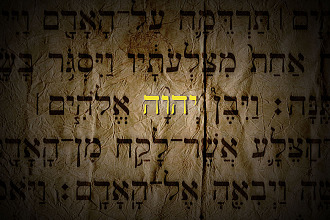Question: Where did Jewish Headcovering Traditions Come From?
Answer: Today we may recognize some traditional Jewish garments, such as prayer shawls and kippahs, which are used to cover the head of the worshiper during prayer.
The Torah does not specially mention either kippahs or prayer shawls, so some may wonder how these items became some of the most common symbols in Jewish life. Some may try to link Jewish head covering to the fact that Moses covered his face, but there is a problem with trying to use that example as the foundation for the principle of head covering during Jewish worship as we can see when we read the text from the Torah.
The Torah states, “And when Moses had finished speaking with them [the people of Israel], he put a veil on his face. But whenever Moses went in before the Lord to speak with Him, he would take the veil off until he came out… then Moses would put the veil on his face again, until he went in to speak with Him[God]. Exodus 34: 33-35. The problem with this example for worship is that the veil was taken off when Moses was speaking to God, and put on when speaking to people, whereas in Jewish worship head coverings are put on before God and not for man.
However, there are examples of Jewish head coverings that God mandated in the Torah during worship, although you might not see it done exactly the same way in many modern Jewish communities. The Torah tells us what was to be worn by the ancient Jewish priests, “a turban of fine linen, exquisite hats of fine linen, short trousers of fine woven linen, and a sash of fine woven linen with blue, purple, and scarlet thread, made by a weaver, as the Lord had commanded Moses. Then they made the plate of the holy crown of pure gold, and wrote on it an inscription like the engraving of a signet: HOLINESS TO THE LORD. And they tied to it a blue cord, to fasten it above on the turban, as the Lord had commanded Moses.” Exodus 39:28-31
So, although some may argue about the exact origin of various Jewish head coverings worn today, the Torah shows us that the basic principle of wearing a head covering along with an acknowledgment of the Lord’s Holiness was part of the Lord’s design for Jewish worship. With that in mind, one may question why God would want Jews to cover their heads. Our heads are important for obvious reasons. If your head isn’t protected and your brain is damaged your whole body’s ability to function can be compromised. If your mind isn’t protected spiritually and you live without purposefully keeping your mind subject to holy thoughts your whole relationship to God can suffer spiritually as well. The Bible says, “Carefully guard your thoughts because they are the source of true life.” Proverbs 4:23.
When everything we allow to pass through our minds are filtered through the basis of whether or not it promote the holiness of the Lord our lives will be vastly different. The more we think of God the humbler we will be and the kinder we will be to others. We would not be tempted to gossip and would think poorly of others less and wouldn’t entertain evil thoughts. Covering one’s head is a reminder that God is above us and we should stay under God’s law of love. So, when you are thinking of Jewish head coverings remember to allow God to cover your mind with righteousness as well.















